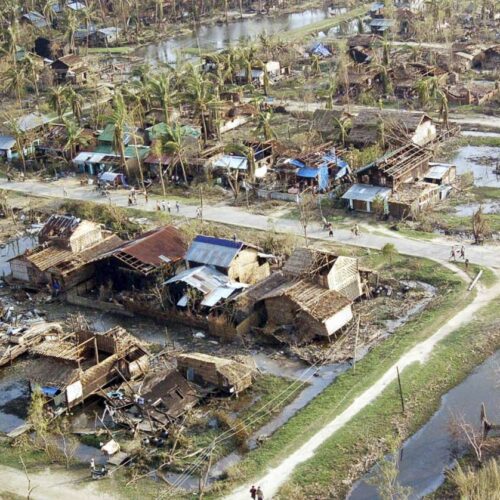Introduction
Federal aid officials have not shown adequate monitoring of cyclone relief efforts in Myanmar, according to a recent audit ordered by Congress – oversight deemed necessary to ensure aid monies are not touched by the repressive Myanmar government and military.
On May 2, 2008, Cyclone Nargis struck Myanmar’s Irrawaddy Delta leaving 140,000 people dead or missing. Millions of others in the island nation, were displaced or adversely affected. Initially, international relief efforts were restricted by the Myanmar government, which said the disaster could be handled internally. Later, however, restrictions were loosened and the U.S., mainly through USAID, dedicated $84.5 million to the emergency response.
According to the report, released Tuesday, in its immediate response USAID took steps toward ensuring that $71.7 million in relief was properly distributed. Officials selected grantees that had worked in Myanmar previously to expedite the response. The agency included guidance in grantee agreements to make sure Myanmar government officials did not benefit from relief. USAID provided what it considered “low value” relief, such as plastic water bottles and plastic sheeting, to reduce the risk of military theft.
However, according to the audit, USAID’s monitoring of the relief effort has included few site visits and limited financial oversight. Instead the agency has relied on outsourced reports from partner organizations.
“Amid numerous travel and operational constraints, USAID has taken actions to monitor grantees’ program delivery; however, we found that their site visits were not always documented as required,” the report said.
According to the report, many of the aid coordinators hired by USAID to oversee the relief response were unable to travel to the locations necessary to monitor the work.
USAID says restrictions on international travel put in place by the Burmese government, the remoteness of the disaster sites and the inability to get visas for staff members prevented the agency from conducting the proper monitoring.
In one case, a USAID food aid coordinator who was assigned to the disaster response team in Myanmar was unable to obtain a visa, and had to conduct her monitoring through informal email conversations with World Food Program staff in the U.S. and in Myanmar.
When she was finally able to visit the country, she inspected WFP warehouses and observed food distribution, but her visit report was never finalized by USAID officials.
Since 1997, the U.S. government has maintained sanctions that limit the amount of financial services that can be provided to Myanmar because of its restrictive policies that limit democracy. Myanmar is also identified as a “major illicit drug producing country” that has failed to adhere to obligations under international counter-narcotics agreements.
In 2008, USAID obtained licenses in order to operate legally in Myanmar and provide funding that would have otherwise been restricted by the sanctions.
Read more in Accountability
Accountability
FACT CHECK: Debt default ‘danger’ revisited
Ceiling raised at last minute under Presidents Bill Clinton, George W. Bush
Accountability
Veterans Department official bills government $130,000 for commute to Washington
Weekly D.C. hotel room, meals were among commuting costs

Join the conversation
Show Comments